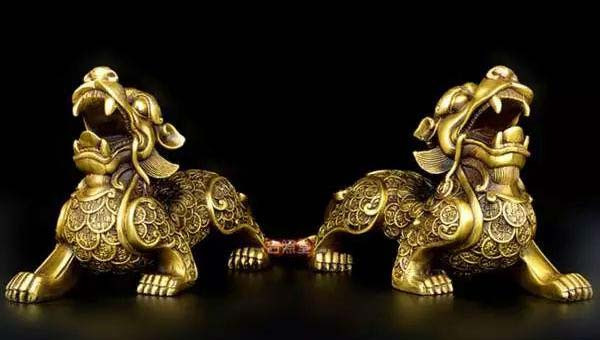

In Chinese people’s minds, dragons are a symbol of power and dignity, and that is also one reason why the Chinese call themselves “descendants of the dragon. Dragons are believed to have supernatural power in changing weather and ruling the oceans and that is very naturally that its sons are all powerful. In Chinese mythology, the Dragon King has nine children: Qiuniu, Yazi, Chaofeng, Pulao, Suanni, Bixi, Bi’an, Fuxi and Pixiu. When news spread among the Chinese people, they regarded the Pixiu as an auspicious animal that can help in making fortunes. According to the English Wikipedia, Pixiu resembles the Chinese lion (aka Foo Dog). The Pixiu is a mythological Chinese animal. The angry Emperor beat it and removed its anus. Pixiu tattoo design by dustybeijing on DeviantArt Tattoo design practice. One day, maybe because it had eaten too much, it relieves its bowels in the Jade Emperor’s palace.

That gives the Pixiu a noble temperament which helped it win the love of the Jade Emperor and the Dragon King. Gold, silver, jewels and all other treasures are the Pixiu’s staple food. As Chinese mythology says, the Pixiu is the Dragon King’s ninth son. The Pixiu has 26 figures and 49 incarnations. That is the very reason why many Chinese people wear jade Pixius. What is different from the kylin is that the Pixiu is a ferocious animal and has strong will in protecting its master. Just like the dragon and the kylin, the Pixiu brings happiness good luck for people and has an exorcising function. The Pixiu is both ferocious and powerful so it works as a security guard of Heaven, resisting demons and ghosts. The Chinese people call it “fortune beast.” This lion-looking beast has the head of dragon, the body of a horse and the legs of a kylin and is able to fly. Pixiu (also called Tianlu or Bixie) is one of the five auspicious animals of traditional Chinese culture (the other four are the dragon, phoenix, turtle and kylin).


 0 kommentar(er)
0 kommentar(er)
